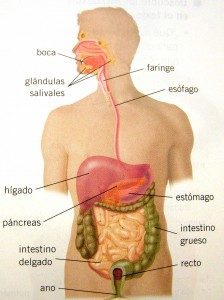 The term contravention is a term in the field of law that is used to designate those acts that go against the laws or what is legally established and that therefore may represent a danger both for the person who carries it out and also for others.
The term contravention is a term in the field of law that is used to designate those acts that go against the laws or what is legally established and that therefore may represent a danger both for the person who carries it out and also for others.
Violation of a minor regulation that is usually accompanied by a sobering punishment
It consists of the violation of a regulation, of a minor nature, and then it turns out to be insufficient to qualify it as a crime; As a consequence of this, it is impossible for a person to be detained after committing a contravention, the usual thing is that a fine is imposed, generally monetary, that has the mission of instruction, that is, that the person becomes aware that what he did not it is allowed and you may have seriously affected other people with such unwise behavior.
The law does not include them in what is considered ordinary criminal law.
Necessary to organize community life
Societies establish norms that are mandatory for those who make it up and whose objective is to organize and order community life, that is, in this way those issues that should not be carried out in any way are determined because doing so would be affecting the common order and also the rights of others.
The fact that it is society itself that establishes and decides on these regulations gives it even greater legitimacy.
Now, we must say that these regulations have different levels of relevance, some actions being more serious than others because they generate damages to third parties, complex and difficult to repair, and on the other side are those actions that do not turn out to be more than one annoyance for others and are easy to remedy.
Normally, the idea of contravention is applied to situations of lack of respect for traffic regulations (for example, not wearing a seat belt), since although many of them are not serious crimes, they always imply breaking the law or the relevant code of coexistence.
When we speak of a contravention we are always talking about an act that is typified in the law and that supposes a type of punishment or sanction for the person who carries it out. This is so since the fact of contravening the law is understood as an error and therefore if the law applies to everyone equally, those who do not respect it must receive some type of sanction, punishment or warning. Contraventions can be very diverse and apply to many aspects of social life: from the ways of behaving publicly to the way of driving and operating a vehicle.
It differs from serious crimes
Unlike what happens with many serious crimes such as murder or torture, the violation could be located one notch lower since they are not generally such serious offenses. Thus, when a person commits a violation, the punishment or sanction is usually not deprivation of liberty, but minor sanctions such as monetary compensation (in the form of fines) or with the imposition of obligations such as serving hours of work. assistance, community service or loss of certain rights related to the activity that was carried out at the time of the violation (for example, losing the driver's license if one committed a violation while driving a vehicle).
The establishment of violations is then proposed to differentiate serious crimes from those that are not and that do not require drastic and forceful measures of punishment as the first. Furthermore, the damage caused by the contravention can be solved quickly and concretely if there is cooperation on the part of the person who caused it.
Of course, violations often generate unpleasant events for the rest of society, but they are a priori easy to solve. However, a corrective penalty will always be applied whose purpose, as we have already pointed out, is to encourage the person to avoid committing that wrong act again.









